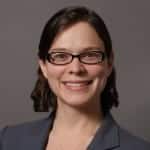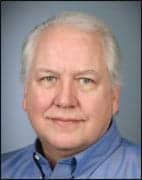By Clarice M.L. Holden, BSE
With less than a week until the New Year, it’s a great time to think about the career goals you wish to accomplish in 2017. Whether that involves embarking on a new project, completing an old one, changing jobs, seeking a promotion, attending a training session or taking a class, such goals can all be enriched (or achieved) by attending a professional conference.
There are many conferences to choose from—and one should be picky in terms of selection because it is a small financial investment for travel, food, hotel, registration, and absence from work.
So, how do you select the best conference to attend? And after you have selected a conference, how do you make the best use of time at the event? Finally, what should you do after attending? With some thought and research, you can get the best investment, with the largest return on professional development. You may even be able to springboard your career by picking the right conference—and being adequately prepared for it.
Pre-conference Planning
This step comes first in the trifecta of conference expertise. By taking advantage of published conference planning materials and reviewing session topics and details, one is able to glean benefits from a conference before even attending it. Identify conferences that interest you, or could provide information relevant to your job (or the job you want).
Other, more mundane, tasks include securing your hotel reservation (This is where Internet travel sites can benefit you, so you can compare nearby hotels to the one where the conference is being held), registering, planning or booking your travel, and getting permission from your leadership to attend.
If you want your employer to sponsor your trip, you may have to do a write up of how your attendance will benefit the organization. When completing such a justification, it is important to keep in mind your professional development goals (and how the organization can support you) and to always be honest!
In order to take advantage of any training dollars allocated to your service/section, justify how the conference sessions will fit in with your job description (i.e., how attending will help you be better at your job.) Hint: Peruse the material for items such as case studies by other engineers and technicians who have tackled/are currently tackling issues that your department is facing and experts commenting on subjects relevant to your everyday duties (i.e., training provision/software/hardware installations).
If you really want to encourage your hospital to sponsor the trip, detail how the trip will benefit patients. Phrases such as “As a result of attending this conference, St. Small Hospital’s patients will be able to experience care with more state-of-the-art equipment” work wonders. Comments like: “The vendor exhibition hall at the Small Town conference will feature several major manufacturers and grant the opportunity for side-by-side comparisons, which will be a great asset for next year’s equipment purchasing cycle” could also strengthen the justification.
During the Conference
If you haven’t already, take a few minutes the first day to look over the entire conference symposia. Select topics that interest you and could benefit your work or professional development. Then write out on your hard copy program which sessions you plan to attend (or select them in the conference app so that you have a solid schedule handy). Making notes for yourself about the sessions will help you retain your thoughts and first reactions, and possibly even list questions for the presenters.
Cross out presentations you’re sure you won’t attend; that way, you aren’t distracted by the descriptions. Check out the company listings for the vendor fair or exhibit hall. Then circle the ones you’d like to visit, and have a few stock questions prepared if you are looking to learn about the companies or products.
Also, make use of any networking events to meet other professionals; bring a business card to share with new acquaintances (but hand these out judiciously, it is more professional to produce the card when asked, rather than trying to hand them out like candy). If there is a resume writing workshop or review opportunity, take it! It never hurts to get an outside opinion on how well you are representing your career in written form.
Post-Conference Follow Up
The last step in making full use of conference attendance is following up. If you made any new connections with companies, employers, or other professionals, send them a “Nice to Meet You” note or email. If you want to reach out to a company, plan a shadowing day, or do a tour of another facility; be sure to have all of your collected email addresses and phone numbers where you can find them. Most of all, apply the knowledge you acquired at the conference to your everyday work so that your coworkers and employers can likewise benefit from your attendance.
2017 will be host to many useful and interesting medical equipment management and maintenance conferences. Be sure to invest your time and money wisely by adequately preparing, making the most out of your attendance, and following up afterward. After all, conferences are an excellent professional development tool. You just have to make the most of them.
Clarice M.L. Holden, BSE, is a supervisor biomedical engineer with the VA Greater Los Angeles Healthcare System and member of 24×7’s editorial board.





